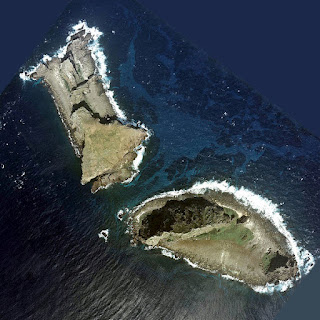Thirty years ago, no one would
have expected the Chinese economy to take off as it has in recent years.
Abandoning state-centric economic policies for market-led ones, coupled with
export-led growth, has transformed the world’s most populous country into an
economic powerhouse. Now as the second largest economy in the world (surpassing
Japan in 2011), China has entered the big leagues with the full intention of
amassing greater wealth and prosperity for its people. What comes with greater
power, however, is greater responsibility…and competition from other global
players ready to reassert their economic interests amidst financial chaos
across Europe and a slowly recovering American economy. From a realist's perspective, the rise of China's economy is a direct threat to American economic interests, and by extension, to the United States herself. But subscribing to this belief will inevitably lead to a Thucydides Trap, or the tensions that arise from a rising power rivaling the hegemonic one. It is very important that Americans do not take this view, and in order to avoid this it's necessary to look at China realistically...and to look in the mirror.
Source: http://www.morningwhistle.com/html/2012/Macro_0504/212106.html
Avoiding a Thucydides trap will be difficult given both the real and perceived economic tensions between China and the United States. And it will be even harder in an election year. As pointed out in a recent article in The New York Times, the Obama administration sent a formal complaint to the World Trade Organization (WTO) about China's trade practices, specifically its subsidizing of its car industry as this is viewed as giving the Chinese car manufacturing industry an unfair advantage. Presidential candidate Mitt Romney has called on Obama to exert more pressure on our largest trading partner, claiming that a complaint to the WTO is not aggressive enough. While aggressive trade policies are a necessary reaction to the trade deficit in the U.S., adding additional pressure beyond WTO negotiations would most likely prove to be detrimental to U.S.-China relations as it would lead to unnecessary political tension. And during a time of rising Chinese economic and political prowess, and the country's growing importance to international trade, further provocation may not be the answer.
Reflection will also be a key ingredient in lessening the chances the United States falls into a Thucydides Trap. Just last week, Special Representative for African Affairs for the People's Republic of China, Ambassador Zhong Jianhua, spoke at Boston University on the importance of reflection, and I believe he offered some good advice. In addressing concerns that China is only interested in Africa's oil and gas resources because of rising domestic demand, Ambassador Jianhua responded with great poise given the invasive questions. The Ambassador reminded us that while China is looking to expand it's markets to Africa and acquire some of its resources, China is being falsely framed as a greedy superpower willing to do anything to satisfy demand for oil and gas. He pointed to the fact that the United States and European Union control or have access to around 66% of Africa's oil reserves, whereas China's stake in the pie stands at a mere 18%. Perhaps the Western world is correct in asserting that China needs oil and gas from Africa to satisfy domestic demand, but they're painting an incomplete picture. Judging ourselves before we judge others, Amb. Jianhua asserts, holds the key to greater understanding. And for the United States, and especially for politicians like Mitt Romney, reflection is lacking, and that deficit could prove costly in that it can and will distort perceptions of good and evil, right and wrong.
Reflection will also be a key ingredient in lessening the chances the United States falls into a Thucydides Trap. Just last week, Special Representative for African Affairs for the People's Republic of China, Ambassador Zhong Jianhua, spoke at Boston University on the importance of reflection, and I believe he offered some good advice. In addressing concerns that China is only interested in Africa's oil and gas resources because of rising domestic demand, Ambassador Jianhua responded with great poise given the invasive questions. The Ambassador reminded us that while China is looking to expand it's markets to Africa and acquire some of its resources, China is being falsely framed as a greedy superpower willing to do anything to satisfy demand for oil and gas. He pointed to the fact that the United States and European Union control or have access to around 66% of Africa's oil reserves, whereas China's stake in the pie stands at a mere 18%. Perhaps the Western world is correct in asserting that China needs oil and gas from Africa to satisfy domestic demand, but they're painting an incomplete picture. Judging ourselves before we judge others, Amb. Jianhua asserts, holds the key to greater understanding. And for the United States, and especially for politicians like Mitt Romney, reflection is lacking, and that deficit could prove costly in that it can and will distort perceptions of good and evil, right and wrong.
One essential question arises: instead of China being an economic competitor, why not a partner that uses trade to the same ends as everyone else?














